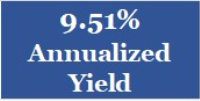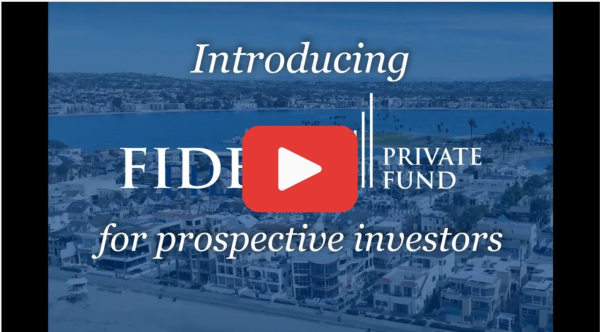Investors seeking stable, predictable returns often find trust deeds attractive. Real estate assets back trust deeds, which offer a unique combination of security, competitive returns, and portfolio diversification. However, like all investments, trust deeds require careful consideration and a trusted lending partner to maximize benefits and minimize risks. In this blog, we’ll explore why trust deeds are reliable for investors and what to consider when evaluating opportunities.
What Are Trust Deeds?
A trust deed is a real estate-secured investment in which the investor acts as a lender, funding a loan secured by property. In the event of borrower default, the property is collateral, allowing the investor to recover their investment.
Key participants in a trust deed arrangement include:
-
Borrower: The individual or entity borrowing funds for real estate purposes.
-
Lender (Investor): You, the investor, providing financing.
-
Trustee: A neutral third party holding the title until the loan is repaid.
Why Trust Deeds Are Considered Secure
-
Real Estate as Collateral
Trust deeds are secured by tangible real estate assets, providing an intrinsic layer of protection. In the event of a default, the property can be liquidated to recover the loan amount. -
Conservative Loan-to-Value Ratios
Lenders typically maintain LTV ratios of 60-70%, ensuring the loan amount is significantly below the property’s market value. This conservative approach creates a buffer to protect investors from market fluctuations or unforeseen challenges. -
Priority in Default
Trust deed investors hold a senior lien on the property, giving them priority in the event of a foreclosure. This means investors are among the first to be compensated if the property is sold to settle debts.

Predictable Returns with a Focus on Risk Mitigation
Trust deeds offer investors predictable, fixed returns that are often higher than traditional savings accounts or bonds. Typical annualized returns can vary but generally range from 8% to 9+%, depending on the property, loan terms, and market conditions. Fidelis Private Fund uniquely offers an investment in a pool of trust deeds generating that return. This offers an advantage as the risk for investors is spread out over multiple loans. Additionally Fidelis retains a 2% loan loss reserve to mitigate against future problems with loan repayments.
Overall at Fidelis Private Fund, we prioritize risk mitigation by conducting comprehensive due diligence, maintaining an average LTV ratio of 60%, and performing in-depth market analysis. These practices ensure that every trust deed investment aligns with our commitment to transparency and investor confidence.
Flexibility and Short-Term Benefits
Trust deeds are highly adaptable to investor goals:
-
Short-Term Maturity: Loans typically mature in 6-24 months, offering quicker liquidity compared to long-term investments.
-
Portfolio Diversification: Investing in multiple trust deeds across various property types and locations can reduce concentration risk and enhance portfolio resilience.
What to Look for in a Lending Partner
While trust deeds are inherently more secure than many other investments, their success relies heavily on working with the right lending partner. Key factors to evaluate include:
-
Track Record of Performance: Ensure the partner has a history of managing trust deeds successfully and delivering consistent returns.
-
Transparent Processes: Look for clear communication on terms, risk assessments, and loan details.
-
Due Diligence and Risk Management: Verify that thorough underwriting and property appraisals are conducted to safeguard investments.
At Fidelis Private Fund, we take pride in our robust processes and commitment to investor success. From comprehensive underwriting to ongoing updates, we ensure our investors are informed and confident at every step.
Key Considerations for Trust Deed Investors
While trust deeds are a secure option, investors should remain mindful of potential risks, including:
-
Market fluctuations that could impact property values.
-
The importance of diversification to mitigate risks across investments.
-
Working only with reputable lending partners who prioritize transparency and risk management.
Addressing these factors can make trust deed investments a stable, reliable portfolio component, offering consistent returns and peace of mind.
Take the Next Step Toward Secure Returns
Timing is critical in making sound investment decisions. If you’re ready to explore trust deed investments and discover how they can complement your financial strategy, Fidelis Private Fund is here to guide you. Call us at 760-258-4486 today to learn more about our tailored investment solutions to preserve your capital and deliver consistent, competitive returns.
Visit fidelispf.com or call us at 760-258-4486 to learn how Fidelis can help you achieve stability and consistent growth in your portfolio.
See Our Most Q4 2024 Performance Report
 Fidelis Private Fund annualized yield paid to Limited Partners for the 4th quarter 2024. Click here for a summary of Fidelis’s annualized yield since inception.
Fidelis Private Fund annualized yield paid to Limited Partners for the 4th quarter 2024. Click here for a summary of Fidelis’s annualized yield since inception.
 Fidelis 2028 Vivid Vision – Where are we going and how are we going to get there!
Fidelis 2028 Vivid Vision – Where are we going and how are we going to get there!
The Fidelis 2028 Vivid Vision document provides a comprehensive blueprint of the company’s strategic direction, core values, and operational principles, highlighting its commitment to capital preservation, growth, innovation, and client-centric services. Click to read the Fidelis vision.



